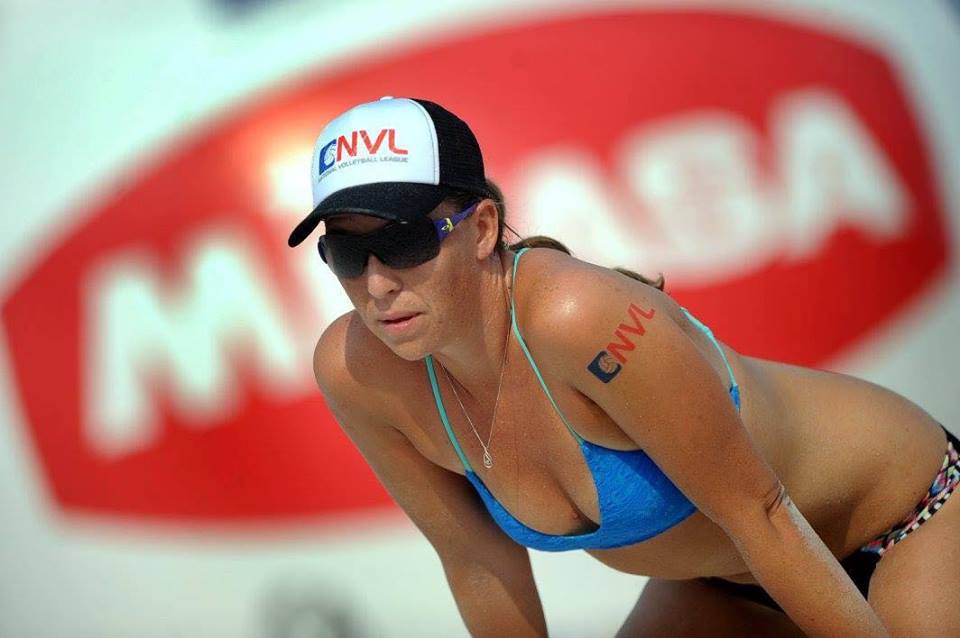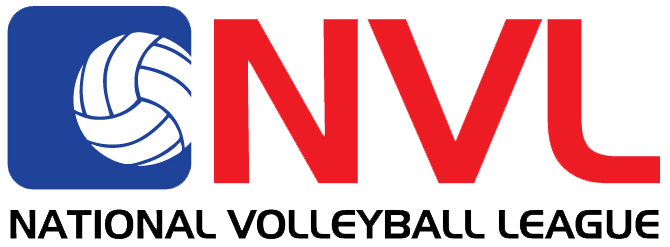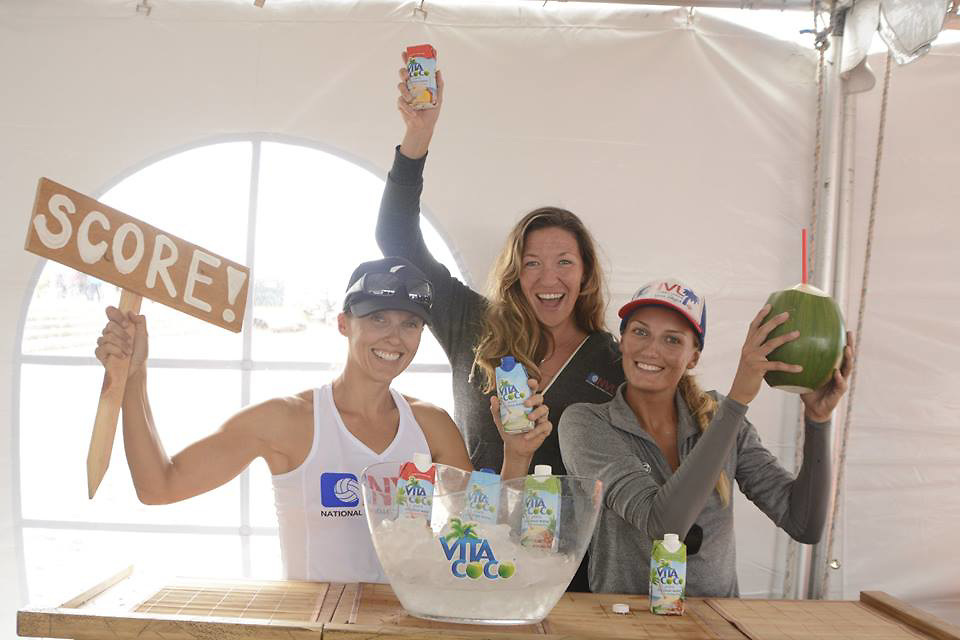
While professional beach volleyball is a sport that only lasts a few months, it takes a year-round commitment to compete at the highest level of competition. Here we catch up with NVL pro beach volleyball player Tarin Keith, who talks about her late start in the sport, her challenges thus far, and what it was like to transition from indoor to beach volleyball. Tarin’s path to where she is today has not been easy, but with persistence and hard work, Tarin has been able to achieve her beach volleyball dreams.
So tell us, how did you get started playing volleyball?
During summer school one year before High School, when I was 13, I was playing basketball and the head indoor volleyball coach at my school suggested that I try out for volleyball. I originally turned him down – I was a basketball player! I did decide to try out for volleyball in 7th and 8th grade, but I got cut. However, I knew I had it in me to play – I was 5’11 and athletic. After the coach’s recommendation, I considered trying out in 9th grade, but I still wasn’t sure if I wanted to. I was still on the fence about whether or not I should try out. My mom believed in me, so she pushed me to try out, so I did and I made the team!
Interesting! So you didn’t play volleyball from a young age. What other sports did you play as a child?
Growing up I played tennis, basketball, and I was on the swim team in middle school. When I started indoor volleyball, that was it for me – I was instantly hooked!
Since you started off as an indoor player, what influenced you to start playing beach volleyball?
A couple of things influenced me. One time, my high school coach took me to the Best of the Beach in Vegas and I got to watch the pros play, and that’s when I totally fell in love with the game. It wasn’t until my Junior year of high school when I did a volunteer gig for a beach volleyball event in Vegas that I was hooked.
So when did you finally take the leap?
Since we didn’t really have official beach teams at UNLV, I played indoor in college and during the summers I’d play grass and beach. After college, I went to Europe to play in an indoor tournament, and it was then that I realized that it wasn’t the right fit. When I came back, I decided to give beach volleyball a real chance. I immediately moved out to Southern California and I went out and played my first tourney, and I totally thought I was awesome. But, that was until I got my butt whooped by old ladies in one piece swimsuits!
Sounds like you had a bit of a rocky start! Tell us, what was your greatest challenge during your transition from indoor volleyball to beach volleyball?
There were a lot of challenges for me. When I played indoor, I was a power player. As an outside hitter, it is all about hitting the ball as hard as you could and as many times as you could. But, in beach volleyball, the court is smaller. You need to have control. You need to get your sand legs. You have to jump up instead of broad jumping. I had to be precise and strong for sand. Then comes the biggest part, the mental aspect of the game. In indoor volleyball, players are often specialized to play one position. But in beach volleyball, you have to cover AT LEAST your half of the court. So, between that and the climate changes, it was definitely a challenge to make the transition, but that’s what I loved the most about it.
Do you have any advice for others who are transitioning from indoor to beach volleyball?
Be patient and work hard. Remember, you get out what you put in, and you have to be ready to dedicate yourself. It’s more than a lifestyle; it’s a game of experience, as well as athleticism and skill.
What does your workout routine look like?
The off-season is about building strength and speed. You lose the most of this during the season because you don’t have the time to lift as heavy and recover as you do during the off-season. The off-season is focused on building that explosive strength and speed. Lifts like cleans and squats are the core of our off-season. Aside from that, it’s the right time to make a change in your skill set. Say you need to work on hitting or passing technique, you want to make changes in the core function of that skill during the off-season. While during the season, your training shifts towards more touches and getting your feet back in the sand. You’re getting the rust off. During the season, it’s more about maintaining strength and concentrating on your speed and agility.
What are the biggest challenges in your athletic career?
The challenge of balancing work and life, and not getting burnt out. You’re constantly on the road and your body gets fatigued. It is also important to find a partner that you enjoy traveling with, and who is on the same page as you, both on and off the court. Overall, juggling a job, relationships, health, family and then you have to go out and perform on the court against people who are working just as hard as you are, is very tough.
Do you have any tips for balancing sports and life?
Have fun. Enjoy the moment. It is human nature to compare ourselves to everyone around us. We are constantly comparing ourselves, especially in volleyball, which can be detrimental to your game. If you find yourself getting beat down, take a step back and figure out what you love about the sport and find a way to enjoy the game again.
What is your advice to all the aspiring professional beach volleyball players out there?
Don’t give up just because one person tells you that you aren’t good enough. If you want to do something, give it your all.
That’s great advice, did you ever find yourself in that situation?
When I was a junior in high school, I asked my club coach – who was also the assistant coach at UNLV at the time – if he thought I was good enough to play D1. He told me no. He told me I didn’t jump high enough, I wasn’t fast enough and basically, he thought I didn’t do anything good enough to play D1. I said ok, he knows better than me. I played my senior year in high school and decided I wouldn’t play in college.
In college, I was recruited to play as a middle for an adult national team in Vegas. Two of the women on my team, who were assistant coaches at UNLV, asked me why I wasn’t playing on the team. I told them my story and they strongly disagreed, so I decided I wanted to try out. I was asked to pass a test; it was mostly an agility test based on running and I am not a runner. I was told that if I passed the test, I could play as a walk-on during the spring season. So every day leading up to the test, I would run this course until I couldn’t run it anymore. My mom was there every time with a stopwatch timing me. I was so nervous before the test. I didn’t know anyone on the team, but I was so fired up and my adrenaline was pumping. At the end of the running test, I didn’t make the time required. But I kept running and kept trying- the coaches saw that and gave me another chance, and I made the team! It was then I realized, she was just testing me to see if I was willing to work for it. When people tell me I can’t, I see it as a test of my strength. I view it as a challenge.
How do you like broadcasting for NVL events?
Broadcasting is SO MUCH FUN. It’s kind of the silver lining to losing! I find it enjoyable; I get to analyze the game and I learn a ton by watching some of the best players in the world.
As a volleyball veteran, how do you plan to stay involved with beach volleyball and give back to the community?
I am very fortunate to be involved in Volleyball Vacations, and I am also planning a trip to coach some people. But for me, as much as I like seeing the kids grow and I know they’re the future of the sport, I really like coaching the adults. That’s the beauty of this sport. You can start playing at any age. We call it “the bug.” You can get the volleyball bug at any age. For me, I like seeing this happen in adults. They are there for all the right reasons. They are there because it makes them happy. For me, coaching adults – it makes me HAPPY because it’s just fun. It’s not about being perfect; it’s about playing the game you love.







